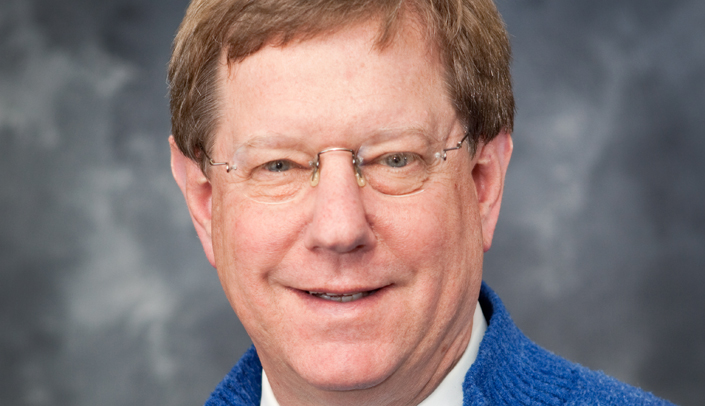UNMC has received a $2.5 million grant to make the electronic health record (EHR) more useful for health professionals and safer for patients.
The five-year grant was awarded by the U.S. Department of Health and Human Services’ Agency for Healthcare Research and Quality (AHRQ) to measure best practices across existing EHR systems, listen and learn what providers believe to be the ideal system, then build and test a model EHR system that can improve patient care.
John Windle, M.D., professor and chief of cardiology at UNMC, said the funding came from an understanding that the intended consequences of EHR adoption also had significant unintended consequences. His preliminary research suggested that physicians resisted EHR adoption because they felt it adversely affected workflow, communications among the health care team and ultimately patient care.
“EHRs were originally designed, developed and optimized as a financial system and a way to document payment and services rendered,” said Dr. Windle, principal investigator of the grant. “But the EHR really has never been designed or developed for the people using it to take care of patients. We’ve been adversely affected by it because of how we take care of patients. It slowed us down. It was a barrier to communication.”
The project is a partnership between UNMC and the University of Nebraska at Omaha. Ann Fruhling, Ph.D., director of the Interdisciplinary Informatics School at UNO, is co-principal investigator of the grant and will lend her expertise in human-computer interactions to build models of the optimized EHR.
The study will involve measuring how cardiologists at diverse health care systems use their EHRs. Sites are: Duke Medical Center in Durham, N.C.; Christiana Health, a large multi-center hospital system in Delaware; Parkview Health, a community-based hospital system in Ft. Wayne, Ind.; and Faith Regional Health Services in Norfolk, Neb.
By the end of the first year, Dr. Windle said the research team expects to be able to identify four or five best practices on how to improve efficiency, effectiveness and safety of the EHRs. While focused on cardiovascular patients, the results, which will translate across the health professions, will be shared with vendors of EHRs.
“There is potential for the EHR to do good things,” Dr. Windle said. “I think the impact of this small grant is going to ripple. We’re just learning how to appropriately use this very powerful technology.”

Congratulations, John. I wish you much success as it is desperately needed.
Hal
Congratulations and good luck to Dr. Windle, a small boat paddling against the tide.
Congratulations Drs. Windle and Fruhling! Way to go! Please include dentistry in your EHR research. Medicine and dentistry need to work together and the way to do that is through a shared medical and dental record. Best wishes